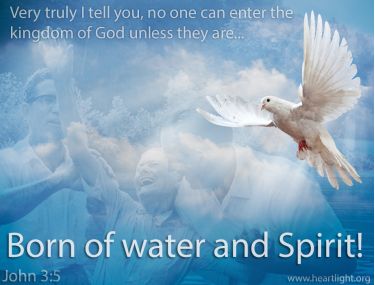THIS VIDEO IS DESIGNED TO TELL US THAT WE NEED TO THANK GOD AND FOR WHAT MANY THINGS HE GIVES US THAT WE DON’T EARN. TO WATCH CLICK THE ARROW IN THE PICTURE. IF YOU PREFER, YOU CAN READ THE ARTICLE.
GOD DESERVES OUR THANKS 11-26-23
While it should be easy to say “thank you” to someone who has done you a favor or had some kind words, but there are times when we forget or just don’t take the time. It should be easy to thank God for the tangible things in our lives. After all, they are right in front if us, and we can see them and even feel them. We certainly should thank God for these things, but God’s blessings in our lives extend to spiritual benefits, emotional healing, relational restoration, and more. All these blessings grow out of His love and grace for us. We have so much to thank God for. One of the problems in not thanking God is we don’t recognize them as from God. This is truer than we choose to admit. God has showered us with numerous blessings. As we approach the Thanksgiving season (or maybe as you watch this video, we are in the Thanksgiving weekend) it is the time when there is that nudging of our souls to remind us that God deserves our thanks. We must express thanksgiving to God for His many blessings to us.
Read Psalm 65:1-4
1 Praise awaits[b] you, our God, in Zion; to you our vows will be fulfilled.
2 You who answer prayer, to you all people will come.
3 When we were overwhelmed by sins, you forgave[c] our transgressions. 4 Blessed are those you choose and bring near to live in your courts! We are filled with the good things of your house, of your holy temple.
Praise is awaiting You, O God, in Zion: The psalmist David described a wonderful picture, the idea that praise was waiting to be given unto God in Jerusalem. The sense is that when God came to meet His people, He would be received in an atmosphere of praise. “The word translated ‘waited’ [awaiting] comes from a root meaning to be silent…. This does not mean that there is no praise, but on the contrary that praise is so complete that at first it can find no utterance.” “Literally, ‘Praise is silence for thee’…. It may sometimes be the height of worship, in other words, to fall silent before God in awe at His presence and in submission to His will.” “Certainly, when the soul is most filled with adoring awe, she is least content with her own expressions, and feels most deeply how inadequate are all mortal songs to proclaim the divine goodness.”
To You the vow shall be performed: God’s people would gather together in Jerusalem to thank God for answering their prayers and to give sacrifices and praise in fulfillment of vows made. Believers should take seriously their vows before God. In addition to vows and promises made to God, our baptism is itself a vow to God. Our association with God’s people is a vow. These should be regarded with a solemn and serious dependence upon God. “A vow unkept will burn the conscience like a hot iron. Vows of service, of donation, of praise, or whatever they may be, are no trifles; and in the day of grateful praise they should, without fail, be fulfilled to the utmost of our power.” At Mount Zion the Son of David fulfilled the greatest vow, coming to completely do the will of God (Psalm 40:6-8) and giving His life as a sacrifice and atonement for the sins of the world.
O You who hear prayer, to You all flesh will come: Praise awaits and vows are performed because God hears and answers prayer. This goodness of God draws not only Israel, but also all flesh. This starts a thought that will be developed later in the psalm. Iniquities prevail against me; as for our transgressions, You will provide atonement for them: This shows a proper understanding of the sacrificial system in God’s greater plan. David understood his personal struggle against sin, and how he sometimes failed in that struggle. He also understood that God’s answer for transgressions is an atoning sacrifice that God provides. David was humble enough to say, iniquities prevail against me. “No man was ever rejected by God for his confessed badness, as sundry have been for their supposed.
Iniquities prevail against me: “Our sins would, but for grace, prevail against us in the court of divine justice, in the court of conscience, and in the battle of David believed in the system of animal sacrifice established by the Law of Moses, but he also looked beyond that system to a perfect sacrifice that God Himself would provide. In this David looked to the Messiah and His perfect, atoning work on the cross fulfilling the promise, You will provide atonement for them.
Blessed is the man You choose, and cause to approach You: In the connection between God and man, David knew that God was the cause of the connection. The connection begins when God chooses and then causes a man or a woman to come to Him, that he may dwell in Your courts. Some think that the chosen man in David’s mind is the priest. Yet he mentions the part of the house of God where all were welcome, the courts. “He mentioned courts, because the people were permitted to go no further into God’s house.” If there is a priest in view, then prophetically we can apply this in an ultimate sense to Jesus, our Great High Priest. “Blessed, above all blessing and praise, is the man Christ Jesus, elect, precious, chosen of God to be a high priest for ever.”
We shall be satisfied with the goodness of Your house: Once established and enjoyed, the connection between God and man brings satisfaction to men. They experienced God’s house as a place of goodness received. The goodness of Your house gives the image of God as a host for His people. “It happily dwells a guest in the house and is supplied with that which satisfies all desires. The guest’s security in the house of his host, his right to protection, help, and food, are, as usual, implied in the imagery.”
Read Psalm 65:5-8
5 You answer us with awesome and righteous deeds, God our Savior, the hope of all the ends of the earth and of the farthest seas, 6 who formed the mountains by your power, having armed yourself with strength, 7 who stilled the roaring of the seas, the roaring of their waves, and the turmoil of the nations. 8 The whole earth is filled with awe at your wonders; where morning dawns, where evening
fades you call forth songs of joy.
By awesome deeds in righteousness You will answer us, O God of our salvation: This was an ongoing confidence in the continuation of God’s goodness. God had answered prayer and provided atonement; David expected such awesome deeds in the future also.. You who are the confidence of all the ends of the earth: David again lifted his vision from beyond Israel to the ends of the earth, to the far-off seas. He understood that though Israel belonged to God in a special sense, He was and is the God of the whole earth.
You who still the noise of the seas, the noise of their waves, and the tumult of the peoples: God’s might is shown in His ability to quiet not only the oceans but also the noise of the peoples of the world. His authority extended far beyond Israel, to the farthest parts of the earth.
i. Stormy and noisy seas put forth enormous energy. According to the National Oceanic and Atmospheric Administration (NOAA), an average hurricane releases energy equivalent to 6×1014 watts of electricity. This is 200 times world-wide electrical generating capacity. The National Aeronautics and Space Administration (NASA) says that in its lifetime an average hurricane can release as much energy as 10,000 nuclear bombs. Yet God can and does still the noise of the seas, the noise of their waves.
Knowing this great power of God should build our faith when we see the tumult of the peoples and are concerned for God’s salvation to reach the ends of the earth. We can think of those at the ends of the earth as those who are farthest off, least known, least thought of, most afflicted, and the hardest to reach. “The child of God in seasons of trouble should fly at once to him who the seas: nothing is too hard for him.” “In pagan mythology the ‘sea’ connoted chaotic and life-threatening powers. However, Israel knew that the Lord created everything and established his rule over the ‘roaring’ seas and their waves.”
Established the mountains by His strength: “Philosophers of the forget-God school are too much engrossed with their laws of upheaval to think of the Upheaved. Their theories of volcanic action and glacier action, etc., are frequently used as bolts and bars to shut the Lord out of his own world. Our poet is of another mind, and sees God’s hand settling Alps and Andes on their bases, and therefore he sings in his praise.”
You make the outgoings of the morning and evening rejoice: The exercise of God’s authority over the earth does not bring it fear and oppression; it brings rejoicing to the day. Outgoings of the morning and evening: “What is pictured, then, may be either the glory of day and night (cf. Psalm 19:1f.; Job 38:7, 19f.), or the whole expanse of earth from east to west, praising the Creator.”
Read Psalm 65:9-13
You care for the land and water it; you enrich it abundantly. The streams of God are filled with water to provide the people with grain, for so you have ordained it. 10 You drench its furrows and level its ridges; you soften it with showers and bless its crops.11 You crown the year with your bounty, and your carts overflow with abundance.12 The grasslands of the wilderness overflow; the hills are clothed with gladness.13 The meadows are covered with flocks and the valleys are mantled with grain; they shout for joy and sing.
It seems that the psalmist is inspired to write about the abundant harvest and give thanks to God. He summarizes the generosity of God’s care of the land (v. 9), and develops the theme of blessing on the land (vv. 10-13). In the future one of the things Jesus will do when He comes to reign is to bring the weather under His control. The deserts will be banished and no longer will the flash floods scourge the countryside. Often people spend a lot of their time complaining about the weather which is a waste of time. It is something that man has absolutely no control over and besides God knows what is best for us. In Elijah’s day He used it to bring people to their knees and He has the right to do the same today. We are also told that it rains on the just and unjust alike.
Verses 9-13 sounds like little more than a lovely nature poem, but it is much more. That’s the problem with cutting it off from the first part of the Psalm. If we read it in the context of verses 1-8, we’ll discover that it is not so much about the goodness of nature, as about the goodness of God. Particularly, the point of Psalm 65 is that our God hears and answers prayer. In Psalm 65, that is the essence of God’s goodness. “O you who hear prayer, to you all men will come (verse 2)…. You answer us with awesome deeds of righteousness, O God our Savior, the hope of all the ends of the earth and of the farthest seas (verse 5)…. ” We enjoy the goodness of God’s creation in green summer and at golden harvest because God hears our prayers.
This is an important corrective to a purely hedonistic enjoyment of “the lazy, hazy, crazy days of summer” and the relentlessly secular focus on the richness of life in our North American celebrations of Thanksgiving Day. James Luther Mays says it very well. “This Psalm directs attention first of all to God, away from any preoccupation with secular good fortune. It insists that thanksgiving is a theological work whose subject is God, not ourselves. It is an antidote to self-satisfaction and self-congratulation.”
Robert Davidson looks at the various movements in the entire Psalm and suggests that it was written in a situation like the one described in I Kings 8:33-36. The people’s sin against God had led to a crisis. Their sin was punished by a drought. The people needed forgiveness more than anything else. The people look to God for such pardon, and for rain. In Psalm 65 the long-awaited rains have come and the people gather in the temple to praise God for his awesome deeds.
The word “forgave” there is a Hebrew word that means to make atonement by covering sin with blood. The Hebrews offered bloody sacrifices of atonement, but, as Hebrews 10:4 says, the blood of bulls and goats could never gain the forgiveness of sins. Those sacrifices were the human side of atonement, the Old Testament way of expressing repentance and faith. The divine side was to cover those sins with the blood of Christ, says Hebrews 9:11-14.
As a result of such atonement, God’s sinful and once separated people now have access to God. “Blessed is those you choose and bring near to live in your courts. We are filled with the good things of your house.” By God’s grace, through the atonement God provides, we can now enjoy all the blessings that come with being in the very presence of God. Forgiveness enables us to enjoy full communion with God. “It’s all good.”
By his awesome deeds of righteousness, God our Savior has not only reconciled us to himself but has also reconciled hostile peoples to each other. So, God is called “the hope of all the ends of the earth and of the seas….” Those “living far away fear your wonders,” those signs of your power (think of the Ten Plagues, the parting of the Red Sea, and the conquest of Canaan). And even as reconciliation with God brings happiness to God’s people, the reconciliation of the warring human race brings joy to all humanity; “where morning dawns and evening fades you call forth songs of joy.” By God’s awesome deeds among the nations, “it’s all good.”
“It’s all good” between us and nature. He cares for the land and waters it. The rain that has come is his gift, flowing from “the streams of God.” The forces of nature are not independent. They are God’s way of bringing life to the world. “You crown the year with your bounty.” Life is so good, in fact, that creation itself, the desert and the meadows, the hills and the valleys, and everything in them “shout for joy and sing.” By God’s blessings upon his creation, “it’s all good.”
All is well. Joy flows freely. Faith is easy. It’s all good. The problem with Psalm 65 is that life is not all good. As I write this, the world if filled with people whose sin has separated from God. They don’t know forgiveness. They don’t enjoy the blessings of God’s presence. They don’t have a clue who the Christ is. And the nations are not in harmony. From the Middle East to the Far East and from Russia to America, the nations are in turmoil. My own nation is in constant turmoil internally. And nature has run amok, as the seemingly intractable Western drought was replaced by rain and flooding of almost biblical proportions. The earth shakes and the winds blow. As the weather changes dramatically, crops are in jeopardy. In my own little life, I need both hands to count the dear friends whose lives have been devastated by nature gone rogue. It’s not all good, not by a long shot.
So how do we see Psalm 65 in the real world? Perhaps we can read it eternally. Maybe this is a picture of the goodness that is coming in the new heaven and the new earth. Note the future tense in verses 1 (“to you our vows will be fulfilled”) and 2 (“to you all men will come”). The opening words of verse 1 may point in this future direction, though they are notoriously hard to interpret. The NIV translates it, “Praise awaits you, O God, in Zion,” which could be read as a future reference. That praise is waiting for the fulfillment of the vision painted in the following words. It lies silent, waiting to be uttered when “it’s all good.” But another translation says that “praise is fitting, is due” because of what God has done for us.
These little hints suggest that we could see Psalm 65 as yet another example of the “already but not yet” of God’s kingdom. We are reconciled to God through Christ, but God’s work is not done because many have not yet heard of Christ. God has begun the work of reconciling the nations to each other, having broken down the dividing wall of hostility that divided Jew and Gentile. But God’s work is not done, because the peacemakers are outnumbered by the warriors. God does bless his creation with bounty, but there is much work to be done in the spheres of agriculture and medicine and conservation before all will experience the goodness of life. God has done awesome deeds, but we are still waiting for the new heaven and the new earth in which righteousness dwells (II Peter 3:13).
We can sing this song of praise today, because God does hear prayer. It’s not all good yet, but “you answer us with awesome deeds of righteousness, O God our Savior, the hope of all the ends of the earth and of the farthest sea.” Whatever else Psalm 65 is, it is a Psalm of hope, because God hears and answers our prayers. “If this is not true, then the whole biblical tradition collapses like a pack of cards, and most of the Psalms [and our prayers] are an exercise in self-delusion.” The Psalm assures us that our hope is sure. “O you who hear prayer, to you all will come.” We can thank God for all He has done and the blessings of today, but we must think about and thank Him for what He will do.




